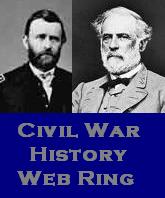Fiddler’s Green is a poem that discusses where cavalrymen go when they die. Not heaven, perhaps something like Valhalla or Elysium. It seems to me an appropriate title for biographies of dead cavalry leaders. This led to another thread, however. Where did it come from?
As mentioned previously, I first came across it during an assignment to a cavalry regiment in Louisiana. It was one of many items of cavalry lore, tradition and warfighting that troopers aspiring to earn their spurs had to memorize and demonstrate during a grueling 24-48 hour “spur ride.”
A few months later I was in an Irish pub (The Irish Rover in Louisville, to be precise) and heard a song called Fiddler’s Green about fishermen dying and going to heaven. Well, so much for originality, but I still like the poem. So where did it come from?
Fiddler’s Green is indeed heaven for fishermen, an opposite of Davy Jones’ locker, which probably came across with English or Irish immigrants to the US sometime in the early 1800s. At some point, the term was stolen and turned into this poem about the cavalry. Given how many immigrants served in the Army during this period, it’s not too surprising. 'Garryowen' of Custer's 7th cavalry is still associated with that regiment and the US Cavalry as a whole. No one seems to know exactly when or how, although I have seen references attributing it to the 6th and 7th Cavalry in the late 1800s.
Its first appearance in print was in 1923, in The Cavalry Journal. An article in the November/December 1965 issue of Armor Magazine by Paul M. Crosby explores “The Legend of Fiddler’s Green”, but I haven’t as yet discovered a copy. Another explanation followed in the January/February 1968 issue of the same magazine by Leendert Verhoeff. Whatever its origins, here’s the poem:
FIDDLER'S GREEN
Halfway down the road to hell,
In a shady meadow green,
Are the souls of all dead troopers camped
Near a good old-time canteen.
And this eternal resting place
Is known as Fiddler's Green.
Marching past, straight through to hell,
The infantry are seen,
Accompanied by the Engineers,
Artillery and Marine,
For none but the shades of Cavalrymen
Dismount at Fiddler's Green.
Though some go curving down the trail
To seek a warmer scene,
No trooper ever gets to hell
Ere he's emptied his canteen,
And so rides back to drink again
With friends at Fiddler's Green.
And so when man and horse go down
Beneath a saber keen,
Or in a roaring charge or fierce melee
You stop a bullet clean,
And the hostiles come to get your scalp,
Just empty your canteen,
And put your pistol to your head
And go to Fiddler's Green.
Subscribe to:
Post Comments (Atom)


1 comment:
Fiddler's Green was a favorite of General Jonathan Wainwright, who had the misfortune to have to surrender the Philippines early in WWII. The son of a cavalry officer, he graduated from West Point in 1906, and was commissioned in the cavalry. Over the next several years he served with the 1st Cavalry in Texas, 1906-08; in the Philippines, where he saw action against Moro rebels, 1908-10.
According to officers and men who served under him, his rendition of Fiddler's Green was highly emotional and was delivered with a great amount of cavalry history and bravado. It was highly entertaining as well as educational.
Prior to his surrender the Philippines, he hid his 1873 Army Colt pistol, wrapped in a wrag and placed in the hollow of a tree. The rusted revolver was recovered in 1945 and returned to him shortly before his death the following year. The pistol is now displayed in the museum at West Point.
Post a Comment